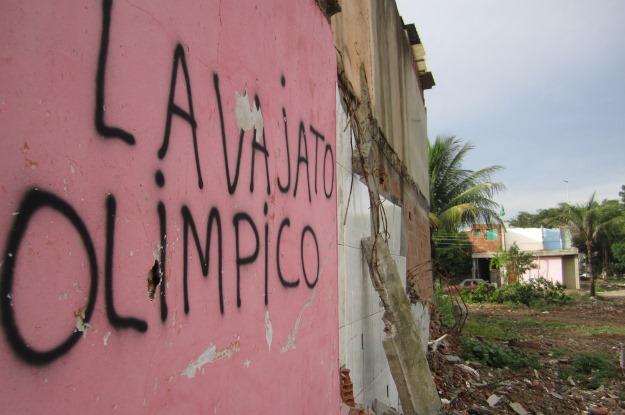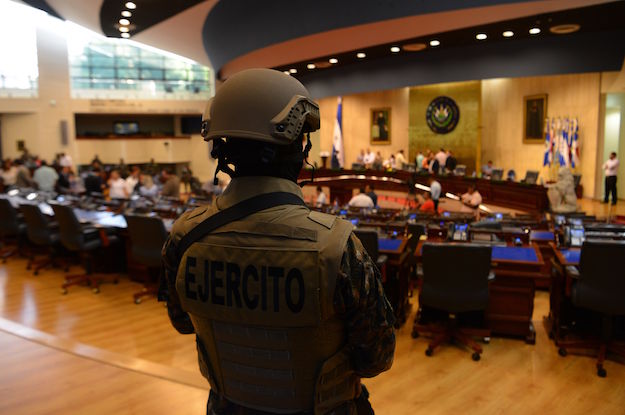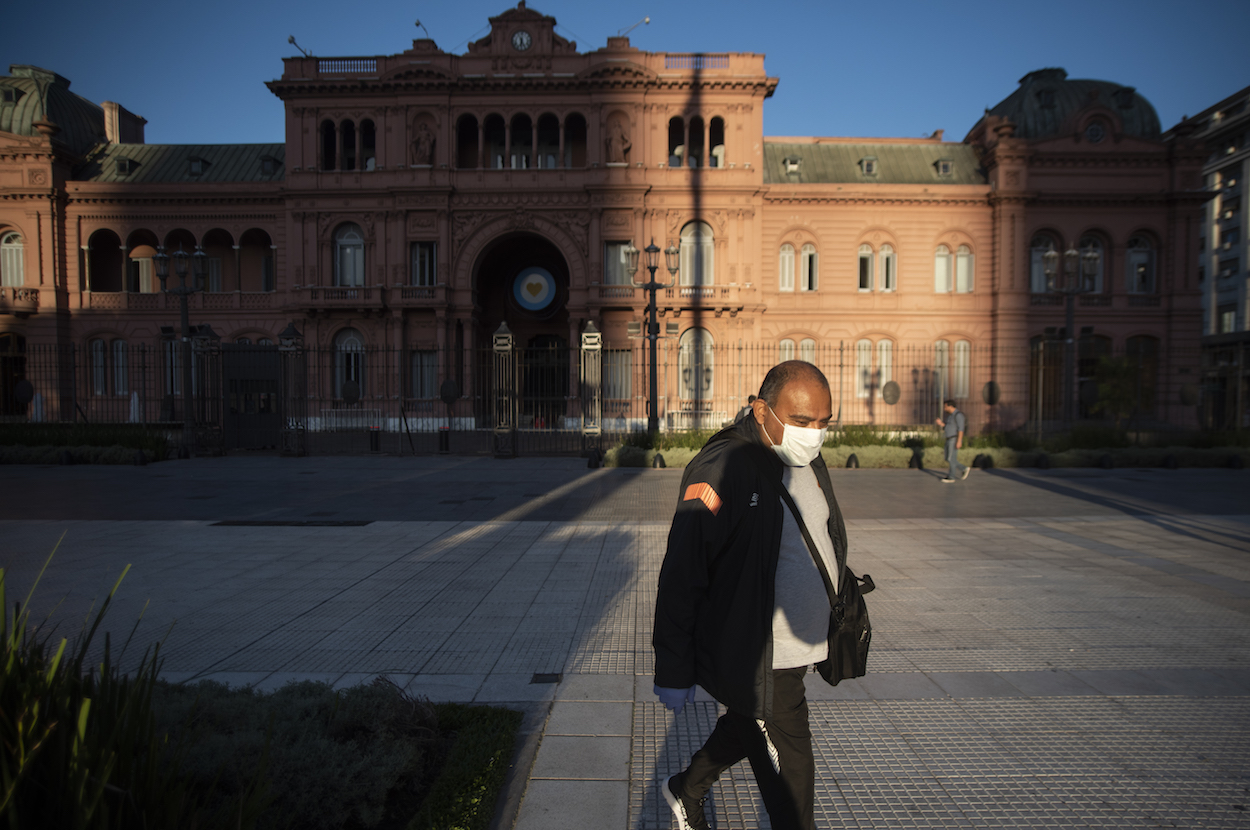The graffiti marking nearly every building in Rio de Janeiro’s Vila Autódromo favela isn’t the work of idle teens. With five months to go before the Summer Olympics, the small community is being demolished to make way for Rio’s planned Olympic Park. The favela has become a focal point for anger over Olympics development, as most of its original residents have been forced to leave. The 30 to 50 families that remain have turned to spray paint to vent their frustrations – and announce their plans to stay put.
The following is a photo essay of the words of grievance and complaint spray-painted on the buildings and fences throughout the fast-disappearing community.

“Not everyone has a price,” reads this graffiti on the wall of a partly demolished home in Vila Autódromo. While about 40 families still live here, more than 90 percent of the 600 residents have already moved in exchange for financial compensation. According to Brazilian newspaper O Globo, some residents received more than 1 million reais ($270,000) to move.
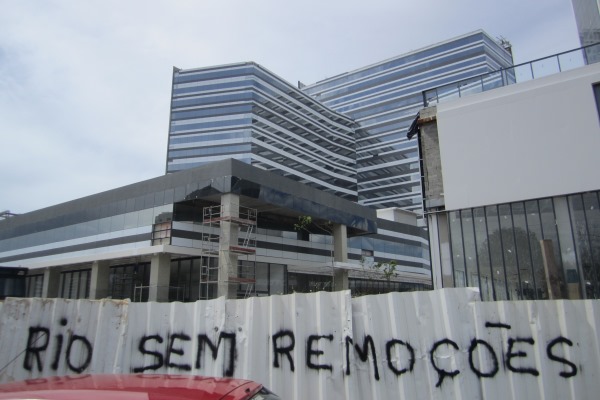
“Rio without removals,” demands this graffiti on a metal fence separating Vila Autódromo from new Olympics construction. According to the December report, “Rio 2016 Olympics: The Exclusion Games,” published by the Popular Committee for the World Cup and Olympics, 77,206 people have been evicted in Rio de Janeiro to make way for developments related to the 2014 World Cup and 2016 Summer Olympics.

This graffiti reads: “The police serve the justice system. The justice system serves [Mayor] Eduardo Paes. Eduardo Paes serves Carlos Carvalho.” The reference is to developer Carlos Fernando de Carvalho, head of the construction company Carvalho Hosken S.A., who is a large landholder around the Olympics site and a major campaign donor to Paes, according to a 2015 article in The Guardian.
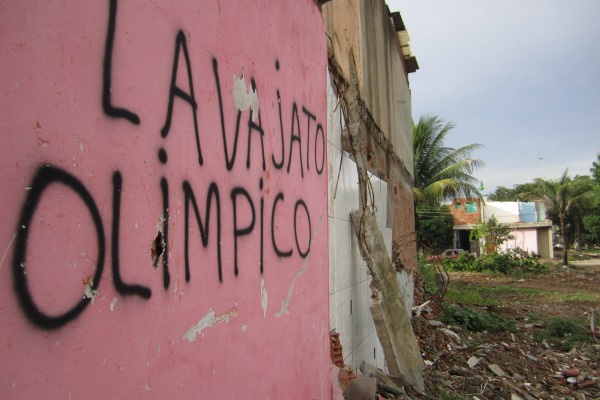
“Car Wash Olympics,” says this graffiti, in reference to a federal corruption investigation known as Operação Lava Jato (Operation Car Wash) that has implicated a number of Brazilian construction firms and political elite. As part of that investigation, Brazilian police are probing more than $10 billion of construction contracts for signs of price-fixing and bribery on contracts to build venues for the Olympics, according to Reuters.
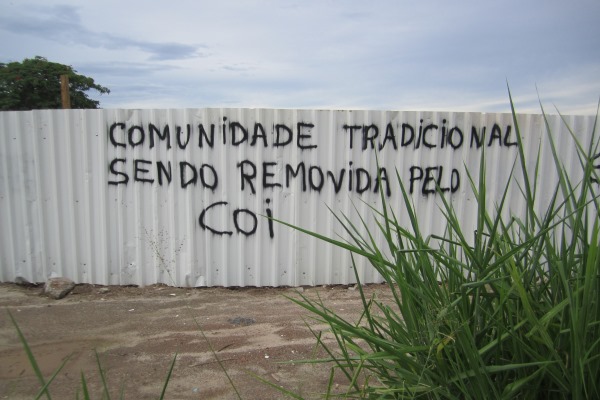
“Traditional community being removed by the COI,” reads this graffiti, using the Portuguese abbreviation for the International Olympic Committee (IOC). Some Vila Autódromo residents blame the IOC for providing the city with a pretext for forced evictions.
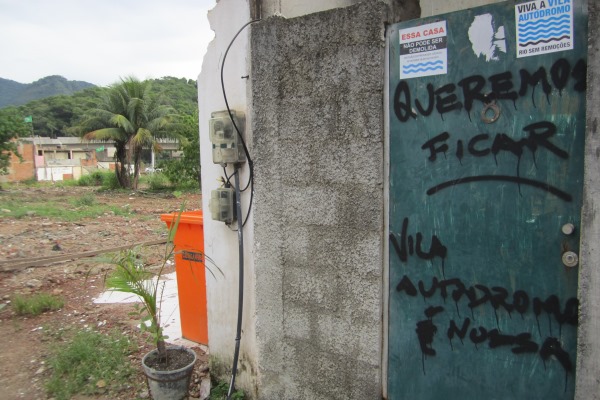
“We want to stay” and “Vila Autódromo is ours” are scrawled across this door. At the top of the door is a sticker warning that this house cannot be legally demolished due to a judicial decision. The same sticker can be seen on many of the remaining homes.
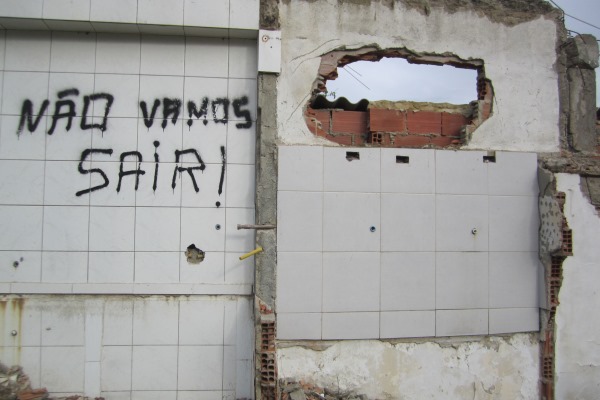
“We will not leave!” exclaims this graffiti. Residents were reportedly told by Alex Costa, the sub-mayor of Barra da Tijuca, “If you don’t leave out of love you will leave out of pain.”
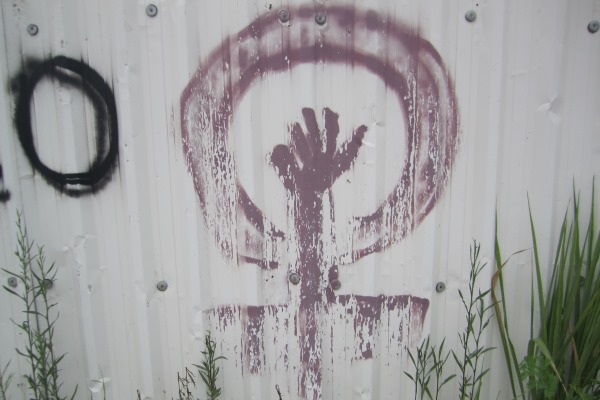
This symbol of women’s solidarity in Vila Autódromo took on added meaning after the March 8 demolition of community activist Maria da Penha’s home on what happened to be International Women’s Day. She had been scheduled to speak that afternoon at a panel on “being a woman in the city,” but canceled to attend a protest in the city center. The day ended with da Penha being honored in a ceremony at Rio de Janeiro’s State Assembly for defending her home and community.
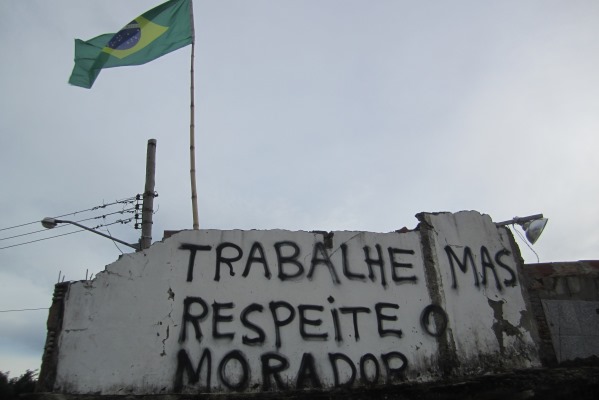
This graffiti, which is visible to workers at the neighboring Olympic Park, asks that they “work, but respect the residents.” The home has sustained damage because of the nearby construction.
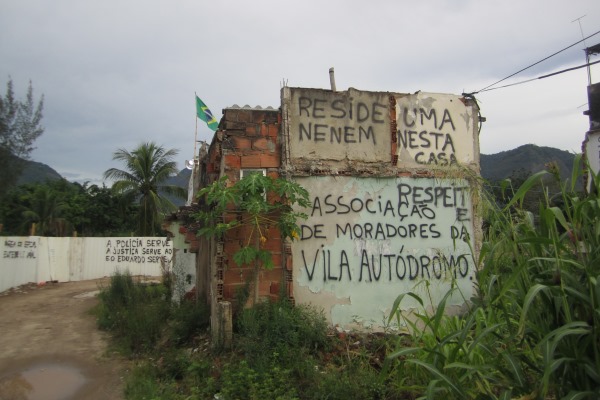
This building is home to Vila Autódromo’s youngest resident, one-month-old Sofia, and the graffiti asks for respect because “a baby lies in this house.”
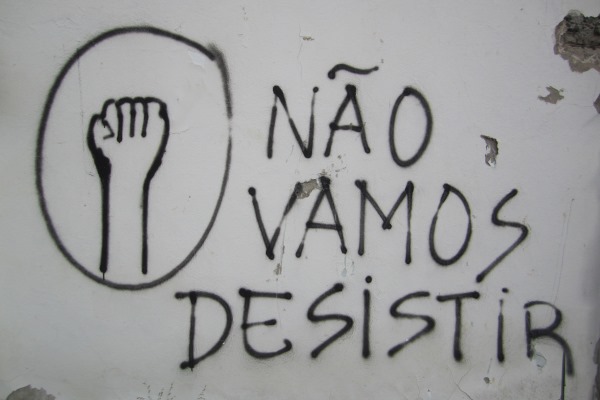
“We’re not giving up,” reads this graffiti. The Olympics opening ceremony will take place on August 5.
—
All photos taken by the author. Talbot is a doctoral researcher at the University of Brighton whose research focuses on community resistance to the Rio 2016 Olympic Games.

